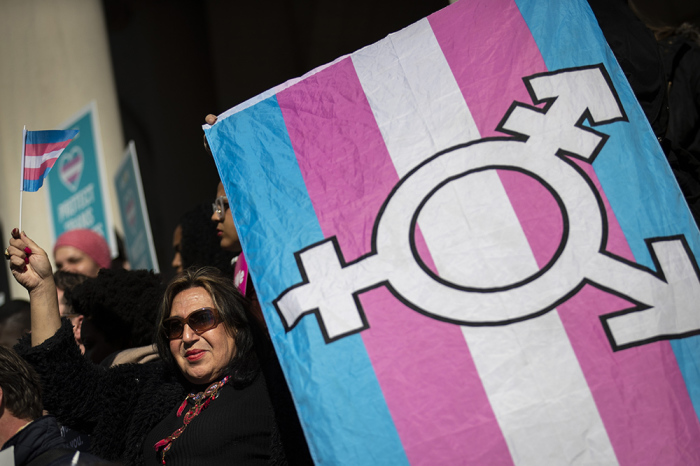Sociologist explains how scientists are inflating results on benefits of sex reassignment surgery

The sociologist who pointed out a coding error in a famous "gay stigma" study is highlighting the inflated interpretations of data on the benefits of surgeries on transgender-identifying men and women.
In an essay in the Public Discourse, Mark Regnerus, a professor of sociology at the University of Texas-Austin, unpacked the analysis from a study published last month in the American Journal of Psychiatry.
The study, titled "Reduction in Mental Health Treatment Utilization Among Transgender Individuals After Gender-Affirming Surgeries: A Total Population Study," argued in its conclusion that “gender-affirming” surgery is linked with decreased demand for subsequent mental health treatment in a sample of people that have been diagnosed with “gender incongruence.”
The study declares: "In this first total population study of transgender individuals with a gender incongruence diagnosis, the longitudinal association between gender-affirming surgery and reduced likelihood of mental health treatment lends support to the decision to provide gender-affirming surgeries to transgender individuals who seek them."
Researchers examined data from over 1,000 Swedes who had undergone gender reassignment surgical procedures, and the data and methods used in the study were sound, Regnerus explained.
Yet it is the scholarly interpretation of the results, particularly those related to surgical interventions on trans-identified persons, that are "remarkably out of step with the far more modest conclusions they merit," he said.
Such interpretation has been widely parroted as truthful in mass media.
The study found no statistically significant mental health benefits for hormonal interventions in the population of self-identified transgender individuals, the sociologist noted.
"In fact, the confidence intervals actually reveal a nearly significant aggravating effect of hormonal treatment on subsequent mental health needs," he said.
The authors of the study did, however, find a statistically significant effect of time since the last "gender-affirming" surgery on reduced mental health treatment. Yet those results hinge on an extremely small group of people.
"The adjusted (for controls) odds ratio for this was 0.92, meaning that, among respondents diagnosed with 'gender incongruence' who then received gender-affirming surgical treatment, the odds of being treated for a mood or anxiety disorder (in 2015) were reduced by about 8 percent for each year since the last surgery. In other words, it would appear that the surgery — or more typically, the series of surgeries — benefited their mental health," he explained.
"But the authors discuss a 'linear decrease' in seeking subsequent mental health care that is simply not visible in the study’s graphs, where post-surgical mental health treatment hovers stably around 35 percent among those in their first nine years after surgery, and then drops to only 21 percent of those patients who are in their tenth (or higher) year since their last surgery."
A mere 19 respondents reported their final surgery as having occurred 10 or more years ago, the data shows. Over half of those surveyed, 574 out of a sample of 1,018, said their last surgery took place within the past two years.
Regnerus was not able to replicate the adjusted odds of the overall effect of time since surgery because he did not have access to the data, but was able to calculate the unadjusted odds from what was presented. Upon doing so, the central finding of the research is illuminated as tenuous.
"[I]f a mere three additional cases among these 19 had sought mental health treatment in 2015, there would appear to be no discernible overall effect of surgery on subsequent mental health," Regnerus said.
"The study’s trumpeted conclusion may hinge on as few as three people in a data collection effort reaching 9.7 million Swedes, 2,679 of whom were diagnosed with gender incongruence and just over 1,000 of whom had gender-affirming surgery."
The research comes amid substantially rising rates of gender surgeries being done and increased visibility of transgender-identified persons and gender identity activism.
Transgender activists and their allies are known for claiming that if medical and surgical interventions are denied to trans-identifying individuals they are at a much greater risk of suicide, and thus urge for greater accessibility and availability of those procedures.
Yet suicide may have claimed an unknown number of Swedes who had undergone such surgical procedures 10 or more years ago, Regnerus said, but it is unknowable because the study did not track completed suicides in this sample.
In 2017, Regnerus published a paper pointing out a coding issue in a study called "Structural stigma and all-cause mortality in sexual minority populations" by Mark L. Hatzenbuehler, which argued that sexual minorities living in communities with anti-gay prejudice faced a higher hazard of mortality than those living in low-prejudice communities.
Following Regnerus' work exposing the error, the study was revised.
"Specifically, the data analyst mis-specified the time variable for the survival models, which incorrectly addressed the censoring for individuals who died. The time variable did not correctly adjust for the time since the interview to death due to a calculation error, which led to improper censoring of the exposure period. Once the error was corrected, there was no longer a significant association between structural stigma and mortality risk among the sample of 914 sexual minorities," the official correction reads.




























